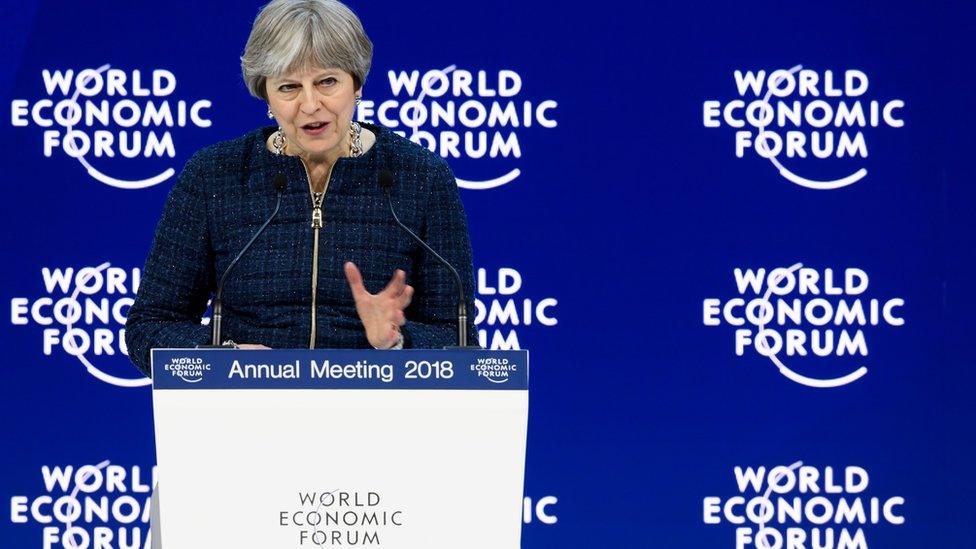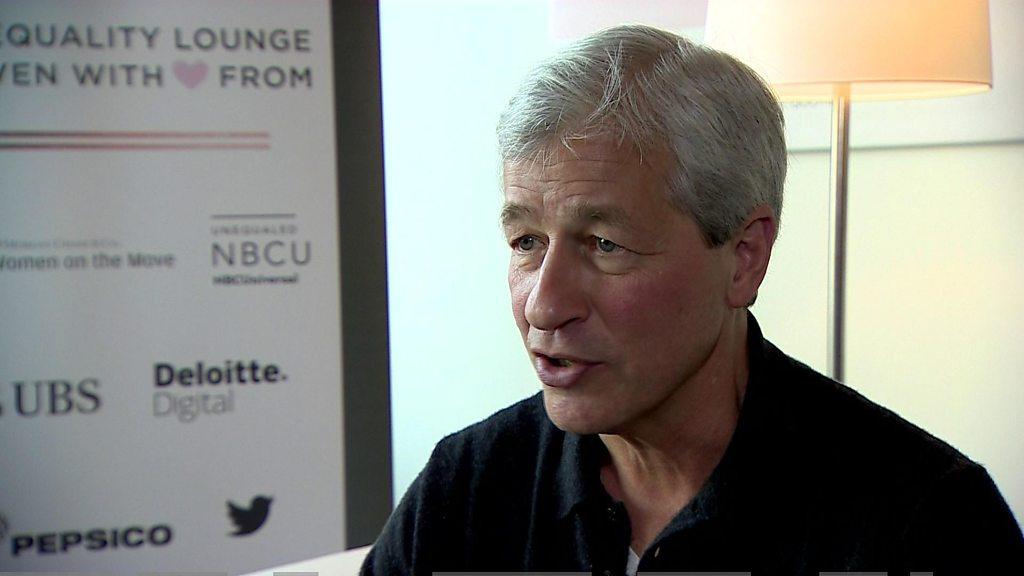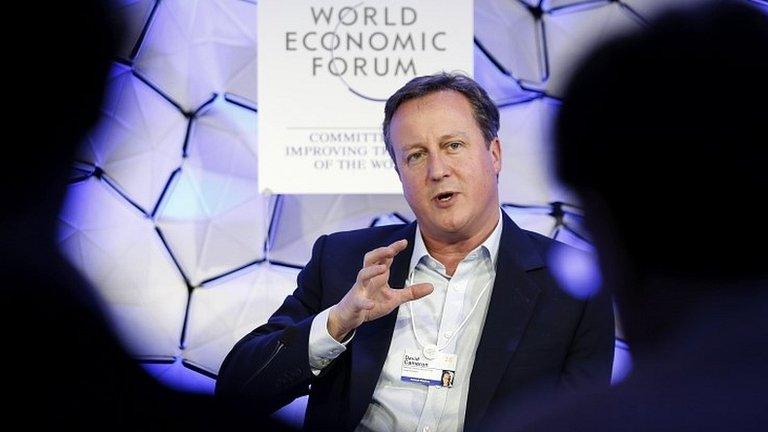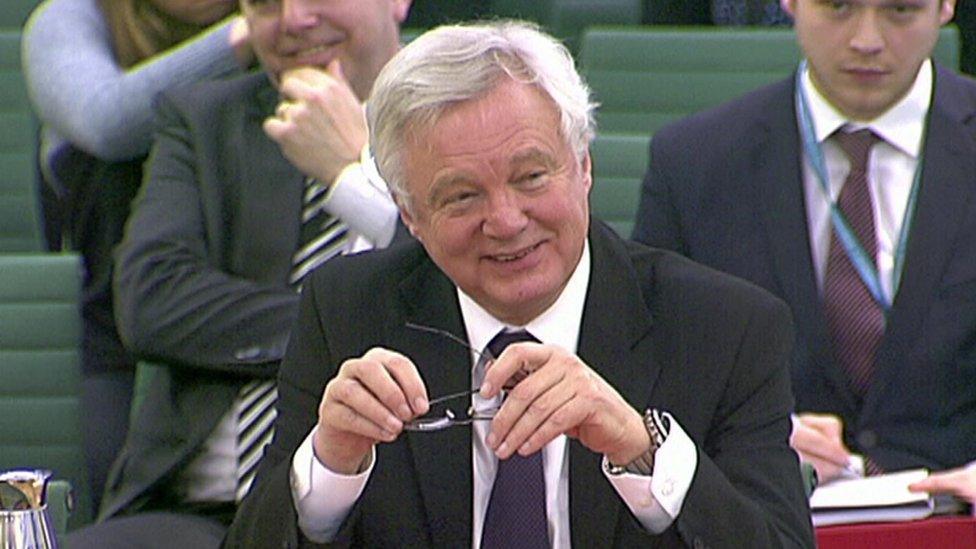Goldman Sachs boss warns on irreversible Brexit plans
- Published
Goldman boss on Brexit point of no return
The boss of Goldman Sachs has warned that the US bank's contingency planning is reaching the point of no return.
The bank's chief executive, Lloyd Blankfein, told the BBC some steps already taken to deal with Brexit were now very unlikely to be reversed.
At some point the steps are "not going to be undone", Mr Blankfein said.
For example, some contracts between Goldman Sachs UK and EU clients have been redrawn, or "repapered", to apply to Goldman Sachs Germany.
"Once we start to repaper - which is very cumbersome because it involves lots of lawyers on both sides and takes months - once we start that are we going to go back? Probably not," Mr Blankfein told the BBC at the World Economic Forum in Davos.
"We've already done some and we have told our clients that more is coming," he said.
'Can't be undone'
When asked exactly when the final point of no return would arrive, he said it was not a binary thing but a gradual process.
"Every month, incremental steps are taken and at some point we do things that are not going to be undone."
The company has already taken 10 floors of a building in Frankfurt while still building a new HQ in London.
Mr Blankfein has taken to Twitter to send a message to the UK government that first, he may not fill the UK headquarters and second, how much he likes Frankfurt.
He added a little more context today. "Look, I like Frankfurt because I have to like Frankfurt," he said.
The Goldman boss' report on his lunchtime meeting with the prime minister in Davos was interesting. First, he said he was told there was no chance of a second referendum.
That's interesting because it reflects the widely held belief in Davos that there is still a scenario in which the UK doesn't leave the EU.
"I asked whether there was anything that might come up that might make people reconsider this awesome and irreversible decision - but I'm told that's not on the cards," Mr Blankfein said.
Second, he was told he may have to trust the government there will be a transition period, during which the status quo holds before the terms of that transition have been agreed. A position he didn't seem very happy about.

The Goldman boss talked about Brexit with Theresa May in Davos
"We may have to rely on the promise of a transition, suspend our march [out of the UK] and yet not be entirely sure it gets accomplished. So we may have to make a leap of faith - which is a little dangerous for us," he said.
Goldman Sachs does not expose itself to risk like that - particularly when dealing with a government which Mr Blankfein describes as "feeling its way" through these negotiations.
The government, for its part, said both the EU and UK are in agreement to "a time-limited implementation period which would be mutually beneficial".
During this period, the UK and the EU should continue to have access to one another's markets on current terms, a government spokesman said.
The only thing Lloyd Blankfein seemed confident about is that whatever happens, a bank that has built a formidable reputation for execution - in English that means getting important stuff done right - will be ready for 1 April 2019, even if the UK government isn't.
- Published25 January 2018

- Published24 January 2018

- Published24 January 2018
